Front Loaders Versus Top Loaders: Which Type of Washing Machine Is More Sustainable?
Published March 2 2021, 3:26 p.m. ET

Clean clothes and linens are a non-negotiable in today’s society, making laundry a routine task in most households. It’s often something we do without thinking about, but still, there’s an environmental cost that comes with doing laundry — in more ways than one. Small changes to our laundry routines can add up, too, lessening the environmental toll and making the whole process greener and more responsible.
One of those changes? The type of washer you use, and whether it’s a front loader or top loader. This might not be something you’ve stopped to consider before, but there can be major differences between them. That said, we’re here to bring you a closer look.
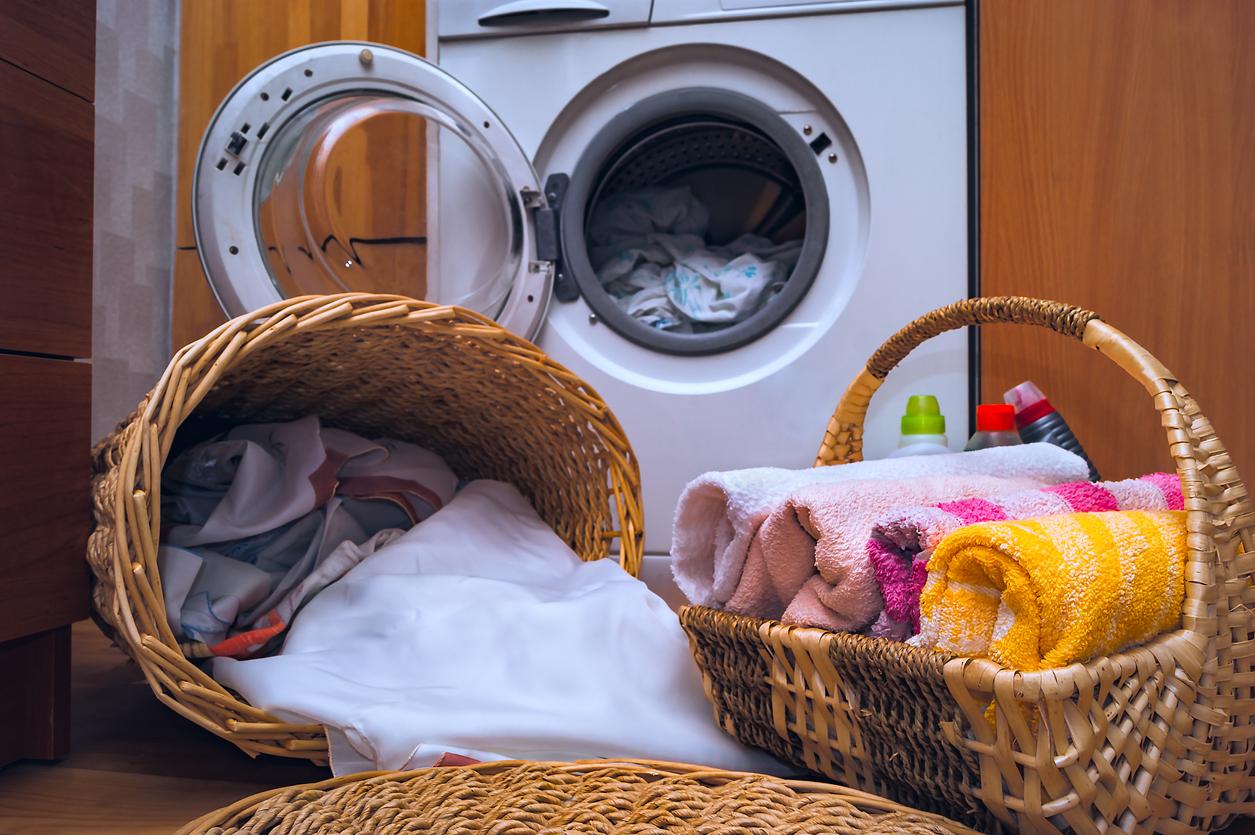
So are front loaders or top loaders more environmentally friendly?
First let's discuss the impact of doing your laundry. According to the National Park Service, the average washing machine uses about 41 gallons of water per load, dryers account for about 6 percent of household energy use, and laundry detergents and dryer sheets often contain hazardous chemicals and emit volatile organic compounds (VOCs).
All of this adds up, as the average U.S. household does about 300-400 loads of laundry a year.
That said, considering the impact your type of washer — whether it's a front or top loader — is important. When front loaders entered the scene, they were thought of as being more efficient and eco-friendly than their top-loading counterparts because they used less water per load. But there are also high-efficiency top loaders, which have steadily become more available and more popular, so it’s important to do your homework (more on this later).
But still, front loaders historically take the cake in terms of overall eco-friendliness, research from the New York Times shows.
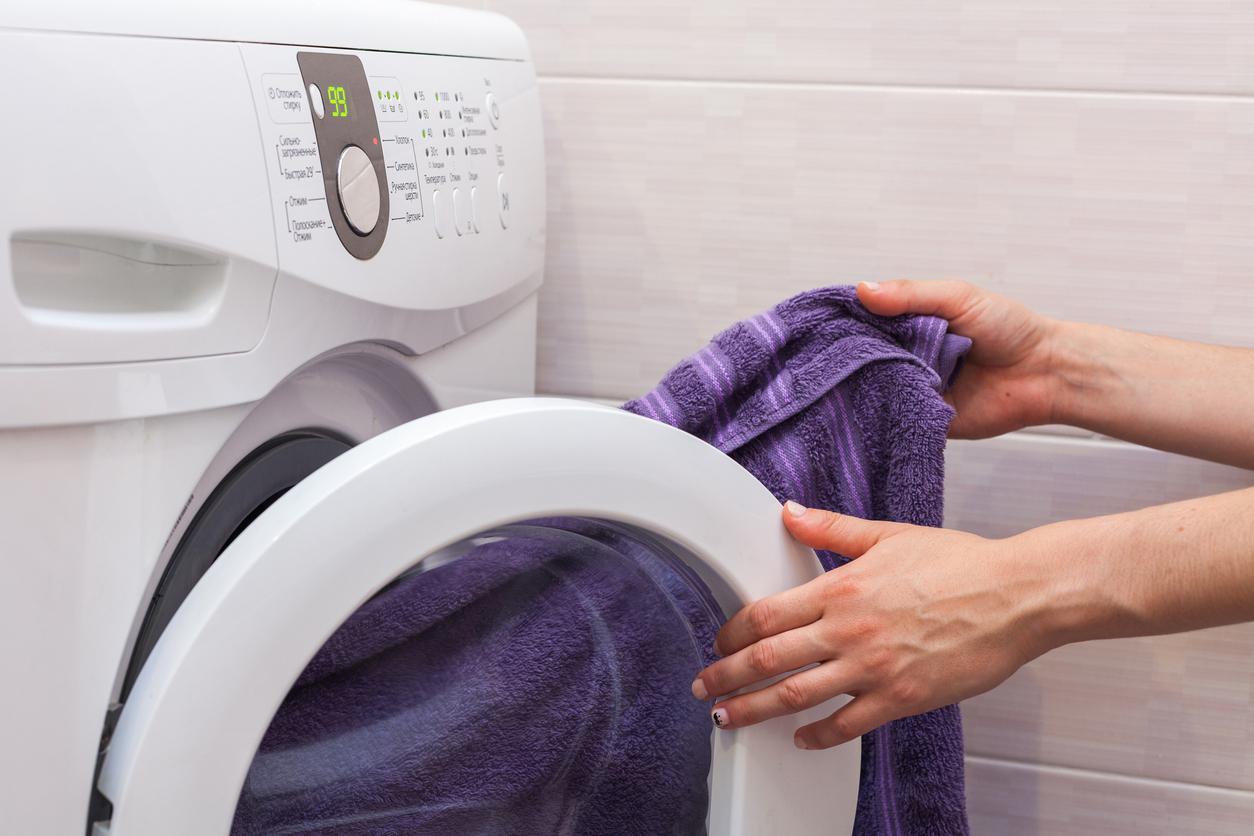
Based on 100+ hours of research and discussions with laundry industry experts and laundry machine repair technicians, their reports show that:
- Front loaders are better are cleaning, with a more effective wash motion and gravity on their side
- Front loaders save water; about 5 fewer gallons per cycle, or around 2,000 gallons per year.
- Front loaders are more energy efficient, saving enough energy over top loaders to power a 50-inch LED TV for five hours a day for 81 days.
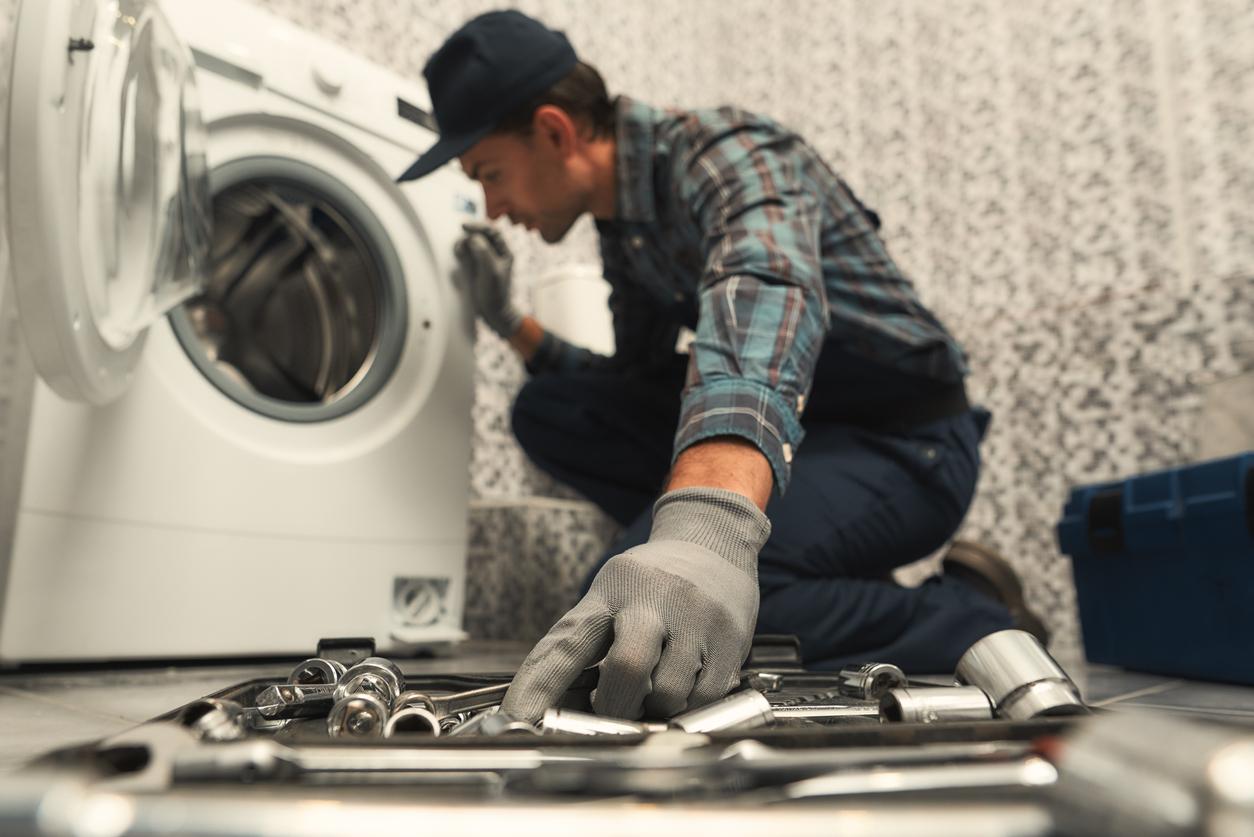
Look for an Energy Star rating to determine efficiency.
As mentioned, high-efficiency front loaders are gaining popularity, and giving front loaders some competition. To determine which washer is the greener option, it’s important to check out the Energy Star rating, which you can look up online or recognize by the tell-tale yellow Energy Star tags while appliance shopping.
“Clothes washers that have earned the Energy Star use next generation technology to cut energy consumption by 25 percent and water consumption by 33 percent compared to conventional washers,” the efficiency organization shares.
Simply put, Energy Star-rated products are the gold standard in terms of high-efficiency, eco-friendly options, whether they are front or top loaders.
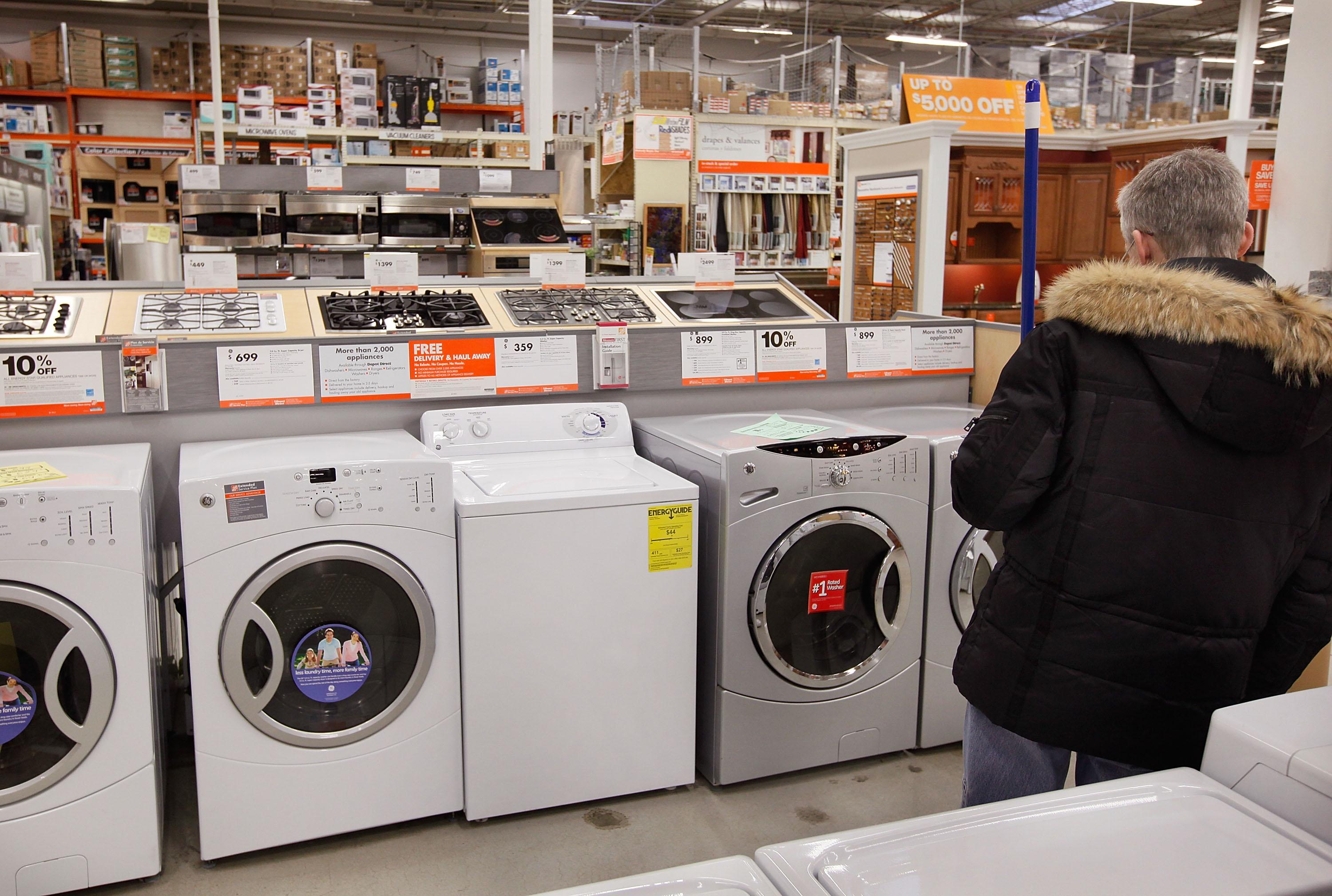
Here are tips to find the most efficient washer.
More specifically than looking for the rating or tag in general, make sure to check out the Integrated Modified Energy Factor (IMEF) and Integrated Water Factor (IWF) — key parts of the rating.
“Integrated Modified Energy Factor (IMEF) is a measure of energy efficiency that considers the energy used by the washer during the cycle and while on standby, the energy used to heat the water, and the energy used to run the dryer,” Energy Star explains.
“Integrated Water Factor (IWF) measures water efficiency in gallons of water consumed per cubic foot of capacity.”
Remember this as a general rule of thumb:
- The higher the IMEF, the more energy efficient the clothes washer.
- The lower the IWF, the more water efficient the clothes washer.
This information can be found on every Energy Star rating.
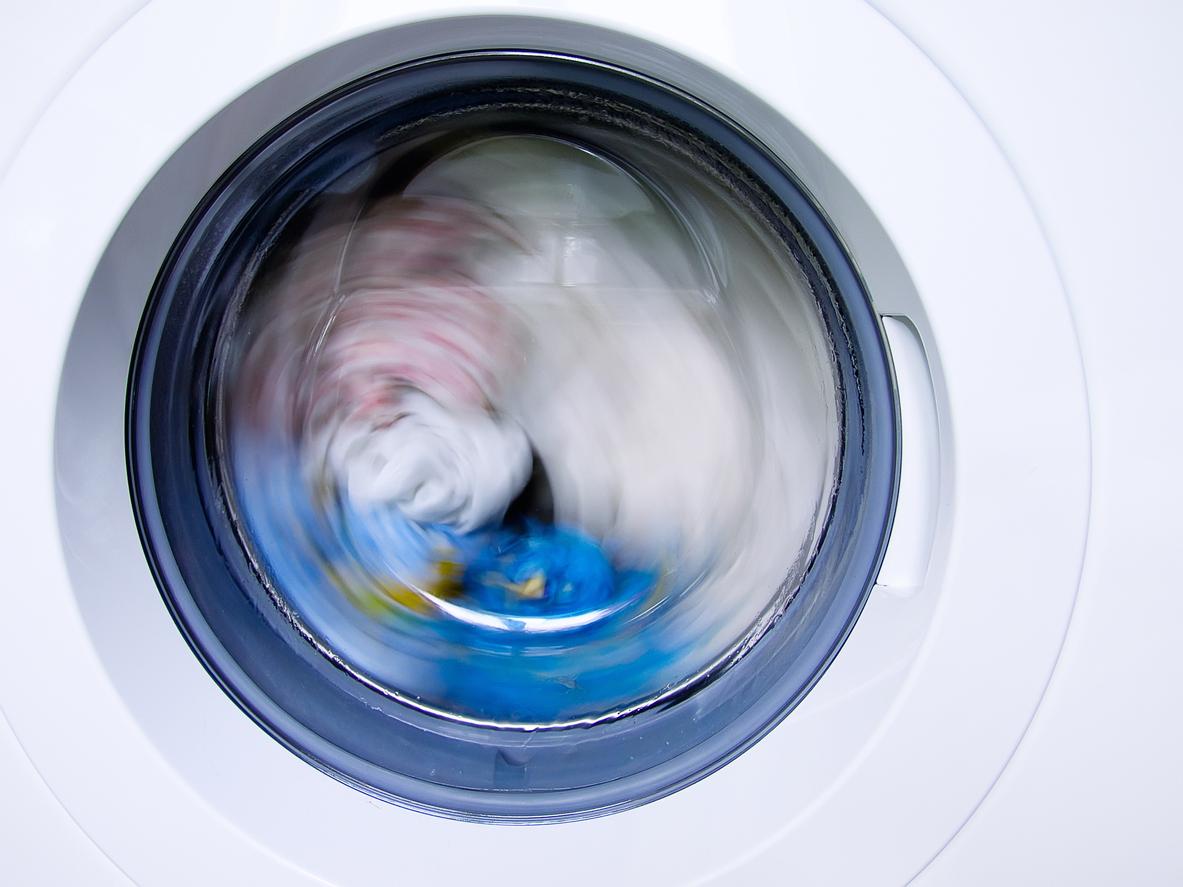
But beware of pitfalls.
While the Energy Star rating is an industry standard in determining appliance efficiency, as the New York Times washer research points out, “Energy Star even gives top-loaders a handicap in their specifications: they’re allowed to use about 15 percent more water than front-loaders and still earn the E-Star stamp of approval.”
What this means is that front loaders are held to different, less rigid standards in some areas, so it’s important to keep this in mind when weighing your options.
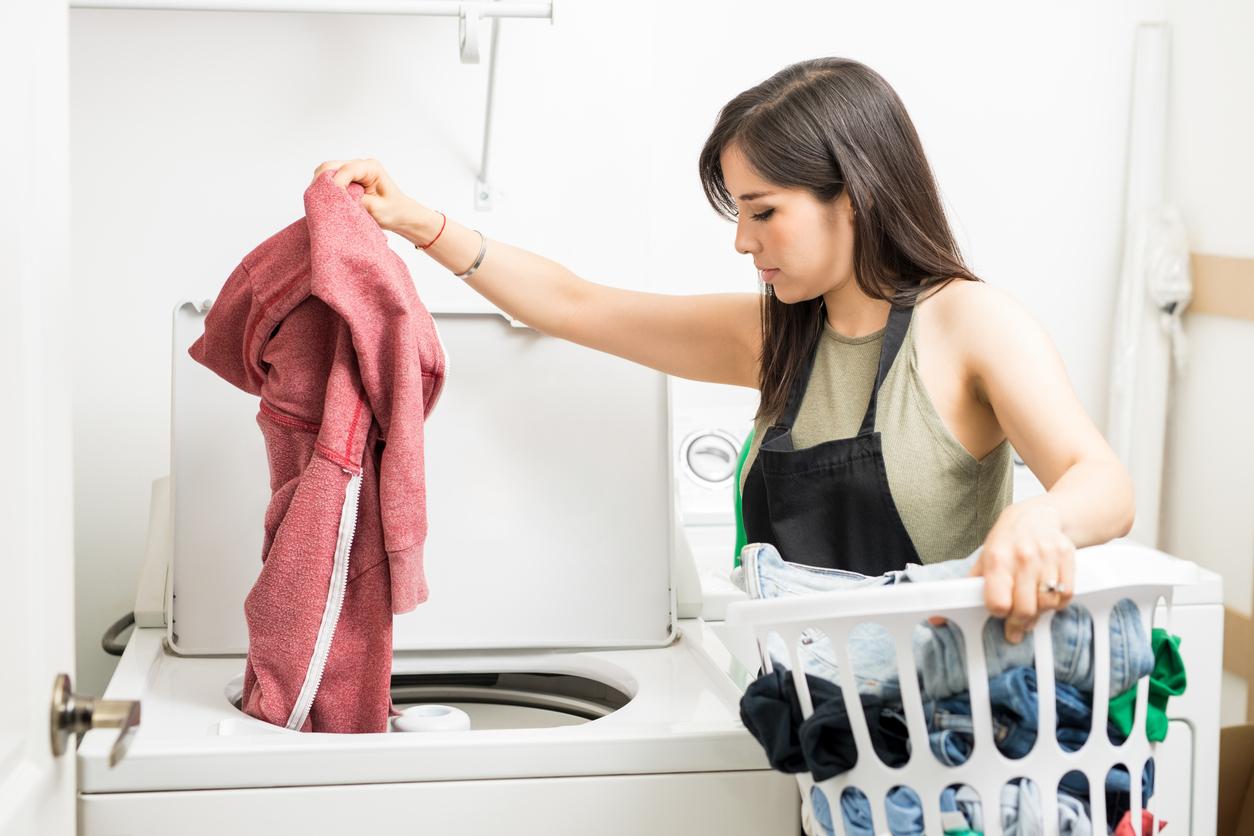
No matter your washer, keep these eco-friendly tips in mind.
There are several ways to maximize laundry time no matter which washer you have. The American Council for an Energy-Efficient Economy (ACEEE) and Energy.gov recommend:
- Upgrade old washers to models that are Energy Star certified
- Only wash full loads
- Use cold water to save energy
- Use detergent designed for high-efficiency machines if you have one
Keeping this in mind, you’re well-equipped for smarter laundry practices and picking the high-efficiency appliances that work for you.